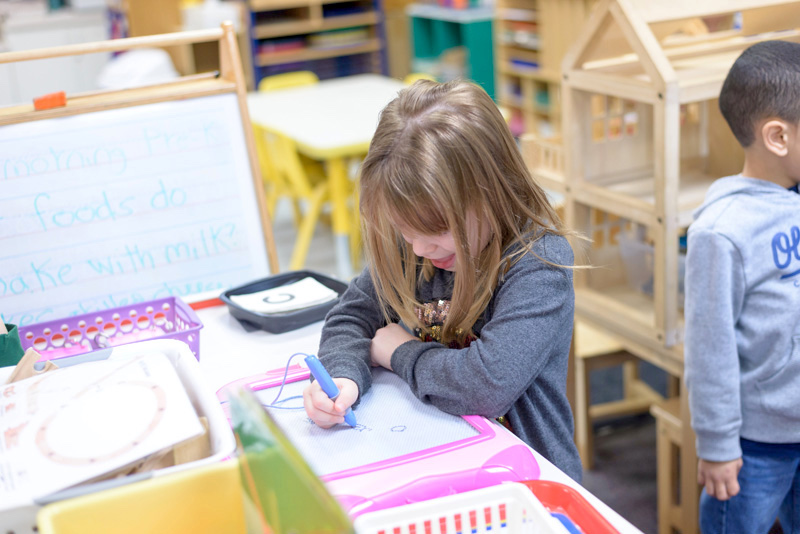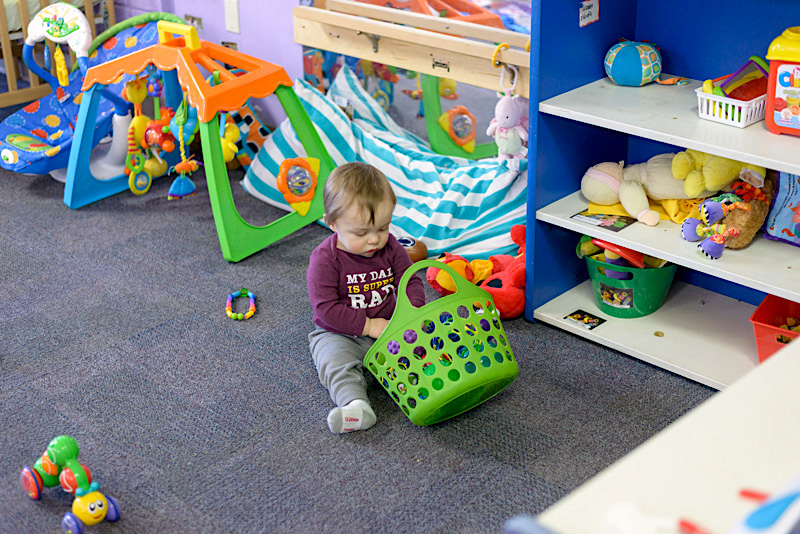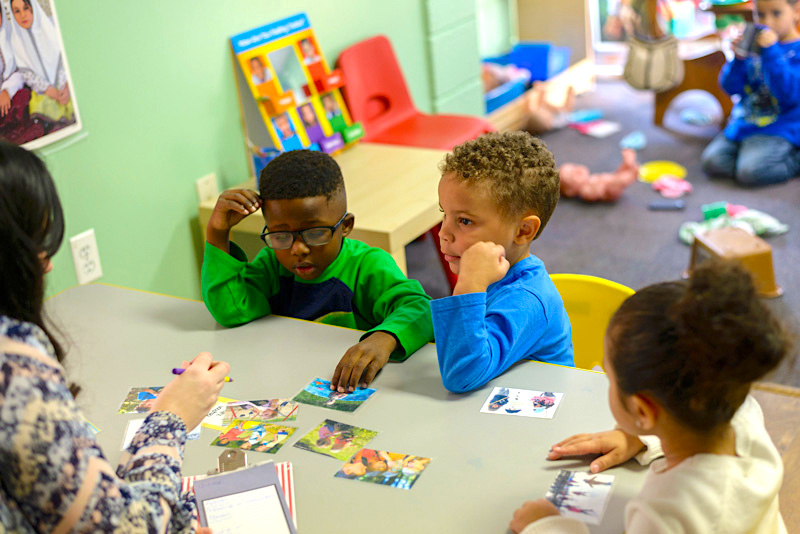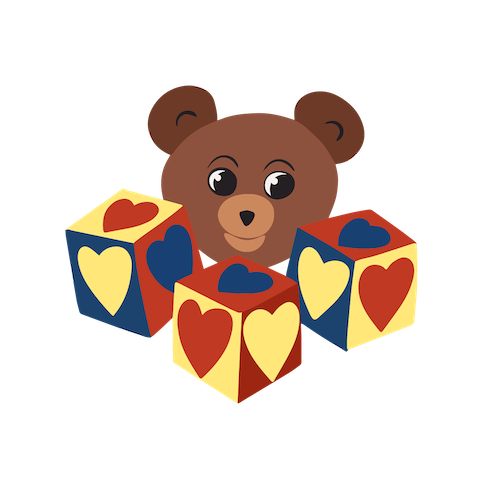The Cuddle Zone Philosophy
From ages six weeks through 10 years old, we have a classroom for your child.
At The Cuddle Zone, we believe children learn best through play, exploration, and meaningful interactions. Our program focuses on each child’s unique needs, interests, and abilities while fostering a love of learning, confidence, and respect for others. Every activity is designed to support social, emotional, physical, and cognitive growth in a nurturing, inclusive environment.

Keystone STARS 4 Facility
Individual Focus
Learning Through Play
Age-Appropriate Activities
Whole-Child Growth
Motor Development
Curiosity & Creativity
Inclusive Community
Confidence Building
Infants Classroom
Our Infant Care program provides a safe, nurturing environment with caring teachers who build responsive relationships—the foundation of early learning. Teachers plan lessons that focus on whole-child development using age-appropriate toys and materials that encourage growth and discovery.
We follow safe sleep practices guided by the American Academy of Pediatrics, including placing infants on their backs to sleep and keeping cribs free of loose items. Each baby’s schedule is individualized based on their needs and parent input, with daily updates shared through our online communication app. Tuition includes meals and snacks, diapers and wipes, and Similac Pro Advance formula, ensuring your little one has everything they need to thrive.
Routines
- Infants are held while given bottles.
- We encourage self-feeding of finger foods, bottles, and sipper cups at developmentally appropriate ages.
- Non-mobile infants are moved from one activity to another to encourage the learning of new skills, including bouncers, activity mats for"tummy time".
- Infants are encouraged to crawl by allowing them time on the floor.
- Infants are encouraged to walk, by providing them with stable furniture to pull up on.
The Cuddle Zone Provides
- Formula – Similac Pro Advance (powder) and Infant Cereal
- Cribs, Sheets and Sleep Sacks
- Diapers and Wipes
- Feeding dishes and utensils including sippy cups
- Infant equipment/age appropriate toys, books, etc.
- Whole milk after 12 months (after 9-months with doctor’s written permission)
- Table Food will be introduced around 11 months or sooner with parental permission. Parents are provided with a copy of our menu.
Parents Provide
- Formula/Special milk (other than Similac Pro Advance)
- Bottles, nipples and caps (labeled with child’s name)
- Baby food
- 2 complete sets of clothing (labeled with child’s name)
- Diaper cream (if necessary)
- Pacifiers (if necessary)
- Sunscreen (late Spring/Summer with signed permission from parent)

Young Toddlers Classroom
Toddlers are full of curiosity and a desire to explore the world around them. In our Young Toddler classroom, children learn and grow through hands-on activities and play-based experiences that build confidence and independence. Teachers plan lessons that support language, cognitive, motor, and social-emotional development, while the daily schedule provides time for play, exploration, circle time, and small group learning. Outdoor playground time encourages gross motor growth, and families stay connected through our online parent communication app.
Routines
- Teachers sing simple repetitive songs to assist during transitions.
- Children wash hands upon entering classroom, after potty, before and after eating, after coming in from outside and whenever necessary.
- Teachers use redirection to avoid conflict in the classroom.
- Begin storytimes and cooperative activites with small groups of children.
Children will learn the following skills through play & exploration
- To use spoons and sipper cups
- To recognize and identify everyday objects
- To follow simple directions
- To respond to and say their first names
- To name and identify body parts, and to identify animals and their related sounds
- Children will be introduced to numbers, colors, and letters through materials, activites and repetition.
- Simple sign language for frequently used items and phrases.
Parents Provide
- 1 complete set of clothing (labeled with child’s name)
- Diaper cream (if necessary)
- Pacifiers (if necessary)
- Sunscreen (late Spring/Summer with signed permission from parent)
- Hat/Mittens/Boots (late Fall/Winter) for outdoor play
Older Toddlers Classroom
Children and teachers will engage in language activities, including reading, singing, fingerplays, and conversations throughout the day. For transition to Preschool, children will be able to use the bathroom independently, able to use cups without lids, and be able to participate at least 5 minutes within a group.
Routines
- Teachers begin potty training in cooperation with parents.
- Children wash hands upon entering classroom, after potty, before and after eating, after coming in from outside and whenever necessary.
- Scissors are introduced with direct teacher supervision.
- Teachers introduce circle time and small group projects.
Children will learn the following skills through play & exploration
- Simple rhymes, songs, stories, child’s and classmate’s names using repetition.
- Teachers use movement and music to encourage gross motor and language skills.
- Identification of ABC’s, shapes, colors and numbers
- Sorting by various attributes such as color, size or shape
- To use self help skills such as putting on coats, dressing, cleaning up after meals/snacks.
- To use positive social interactions with peers.
Parents Provides
- 2 complete sets of clothing (labeled with child’s name)
- Sunscreen, Bathing Suit, Towel, and Swimmy Diapers (late Spring/Summer) with signed permission from parents
- Hat/Mittens/Boots (late Fall/Winter) for outdoor play
Preschool & Pre-K Classrooms
In the Preschool classroom, 3-year-olds build confidence and independence through language-rich activities such as reading, singing, finger plays, and simple conversations with teachers and friends. These experiences encourage listening, vocabulary growth, and social interaction, helping children learn to express themselves and work together in small groups.
In the Pre-K classroom, 4-year-olds continue to strengthen communication and early literacy skills through engaging stories, songs, and group discussions. Lessons become more structured as children begin recognizing letters, sounds, and early writing concepts, all while continuing to learn through play and hands-on exploration. By the end of the Pre-K year, children are well-prepared for the routines and expectations of Kindergarten.
What We Teach
- Children are taught Kindergarten readiness skills.
- Children are taught to recognize and write their first and last names.
- Children are exposed to language through dialogue, songs, dramatic play, music, and literature.
- Children are taught games, rhymes, and songs through repetition.
- Children are read to and asked to interact with the story. Stories are related to themes and the children’s needs and interests.
- Children are encouraged to look at books and tell a story by looking at pictures.
- Simple science concepts are introduced and reinforced by hands-on experiments, cooking, and other projects.
- Mathematical concepts are introduced, reinforced by hands-on materials and experiences.
- Children are supported as they learn to recognize and write letters and numbers.
- Critical Information is taught, such as Name, Address, Phone Number, 911, Parents’ names.
What to Expect in Our Classrooms
- Children are encouraged to work in small groups as well as independently.
- Children are encouraged to take on more self-help skills, such as getting mat ready for rest, hand-washing, pottying, dressing and undressing, and clean-up.
- Children wash hands upon entering classroom, after potty, before and after eating, after coming in from outside and whenever necessary.
- Dramatic play is provided to stimulate imagination and encourage social, emotional, and language development.
- Circle time includes songs, morning message and is a time to discuss theme related subjects.
- Field trips are planned several times a year and parents are invited to join us.
- Teachers provide many learning opportunities in small & large groups in addition to centers.
- Teachers use age appropriate dance, music, games, and free-play to develop gross motor skills.
Parents Provide
- 1 complete set of clothing (labeled with child’s name)
- Sunscreen (late Spring/Summer with signed permission from parent)
- Hat/Mittens/Boots (late Fall/Winter) for outdoor play
- Optional: Reusable/washable water bottle filled with water. These are sent home daily to be washed (labeled with child's name).
Pre-K Counts
The Pennsylvania Pre-K Counts program makes high-quality early education accessible to more families by providing free Pre-K to eligible children ages 3 and 4. This program helps prepare children for Kindergarten success while building a strong foundation for future learning and a lifelong love of school. In our classrooms you will see: center based learning – learning centers that have been created and planned by teachers including the materials, the learning process and the goals, peer groups – children working independently and cooperatively in small and large groups, print – helping children learn about language, its purpose and its use, conflict resolution – children will learn ways to deal with conflict and work through their problems.
What To Expect
- Students who are eligible for the PreK Counts Program are enrolled into one of our six(6) PS/Prek classrooms.
- Qualifying students will be eligible for 5 hours per day at no cost, and a significant discount for before and after care (if needed).
- Eligibility requirements include residing in a local school district area, meeting age requirements (3 or 4 years old), and income eligibility.
- Families with a combined income at or below 300% of federal poverty level, example - family of 4 earning less than $96,450) will qualify for the PreK Counts Scholarship program.
- An Application must be submitted with household income documentation
- A copy of your federal 1040 tax return and a copy of birth certificate will be required.

Kindergarten Classrooms
Our full-day Kindergarten program provides a balanced blend of academics, creativity, and social development in a structured, supportive environment. Licensed through the Pennsylvania Department of Education, this program builds upon the skills developed in our Pre-K classrooms while preparing children for a smooth transition to first grade. With individualized attention, engaging lessons, and opportunities for exploration, students gain the confidence and knowledge they need to succeed in elementary school and beyond.
What We Teach
- Private Kindergarten licensed by PA Dept of Education
- Full-day program with structured learning and play
- Attendance policy in place; written excuses required for absences
- Before and after school care available (up to 9.5 hours per day) and included in tuition
- Enrollment open to children age five by October 31st
- Placement into 1st grade depends on individual school district policies
- Curriculum goals provided upon request or at enrollment
- Our Kindergarten Summer Program offers fun and engaging experiences for children. Each week includes exciting field trips and hands-on activities in science, math, art, crafts, and literacy. A summer activity fee covers the cost of field trips.
Summer Programs
Our Summer Program offers school-age children a fun, enriching way to stay engaged during their summer break. Each week brings hands-on activities in science, art, math, and cooking, along with creative projects, games, and journaling. Children enjoy time with friends, weekly field trips, and optional swimming at a local Bethlehem-area pool—all while continuing to learn, explore, and grow in a safe, supportive environment.
What To Expect
- Open to school-age children during summer break
- Engaging activities including science, math, cooking, art, crafts, computers, and journaling
- Weekly field trips to local destinations
- Optional swimming offered at a Bethlehem-area pool
- Returning students receive priority enrollment
- Activity fee covers special programs and field trips
- Additional fees apply for swimming and select trips
- Calendar of events and permission slips provided to parents in May
- Registration begins in February each year

